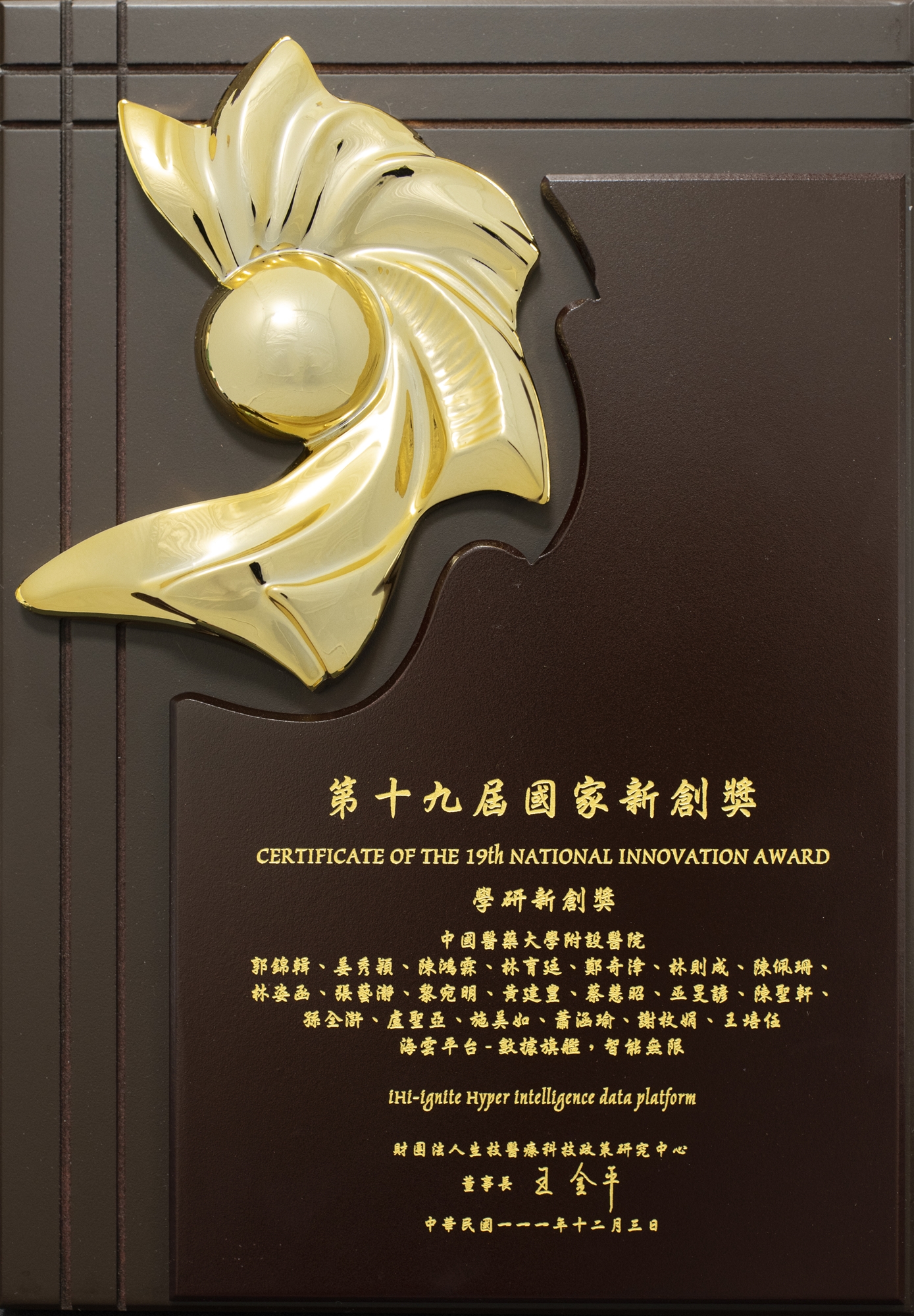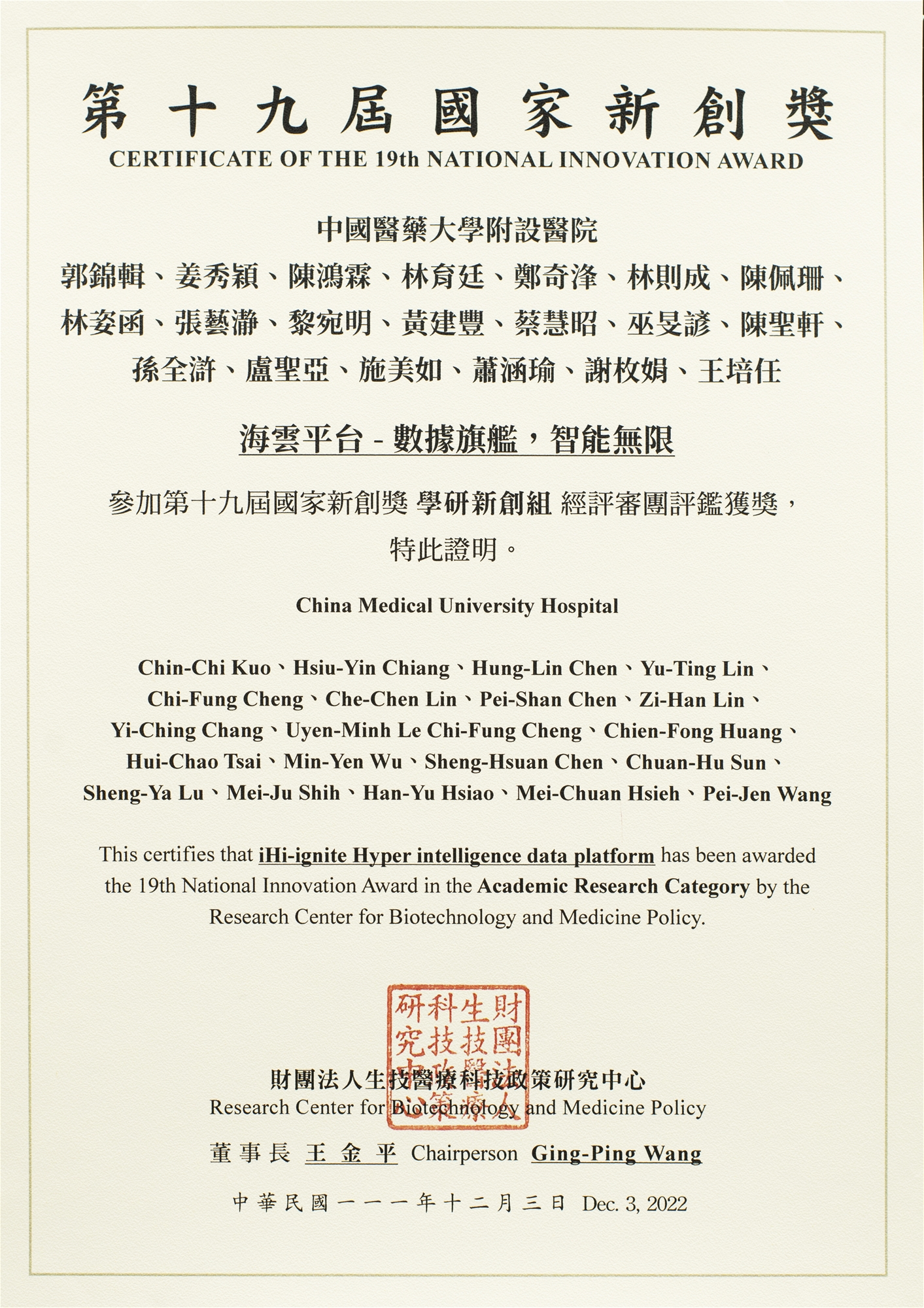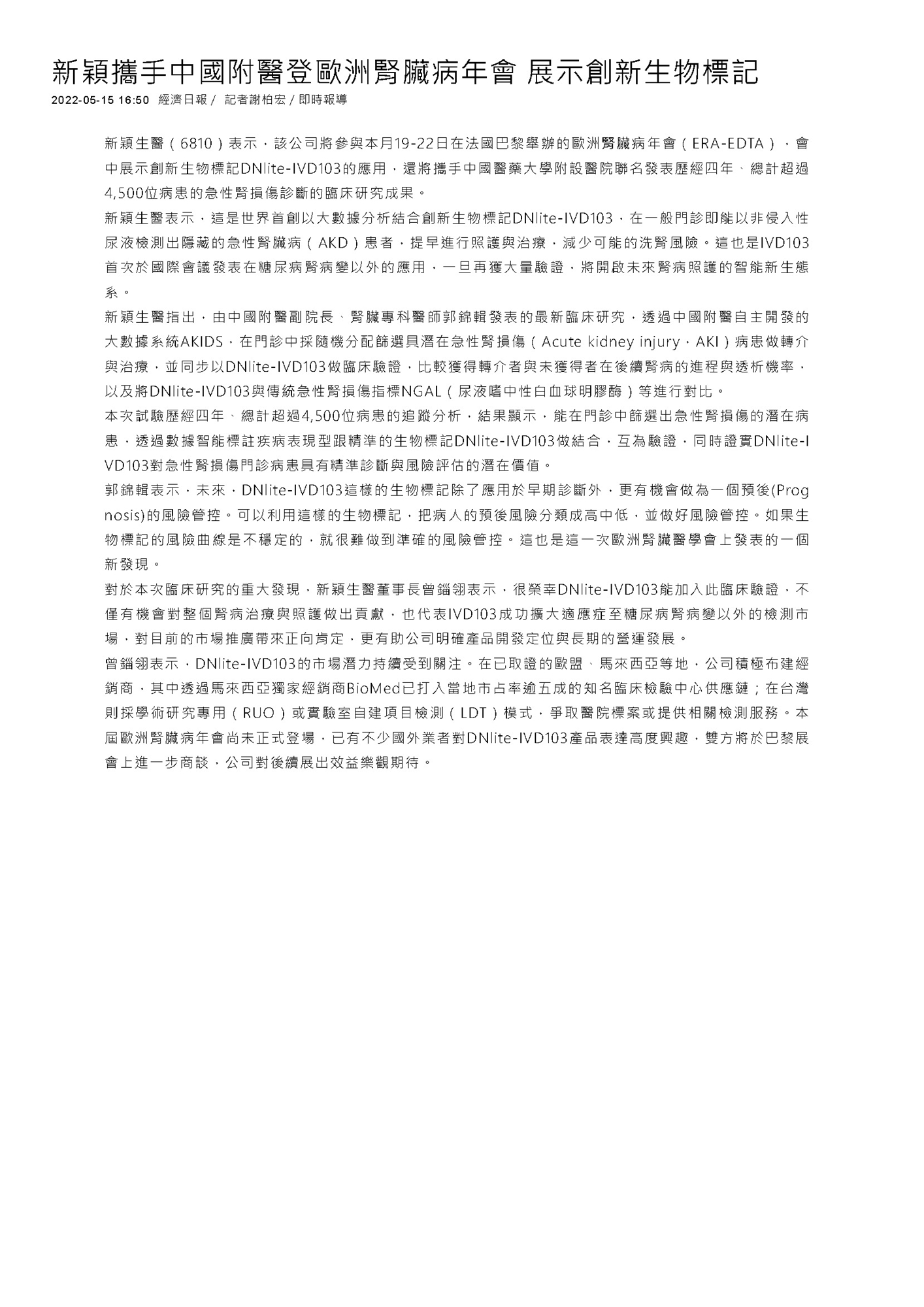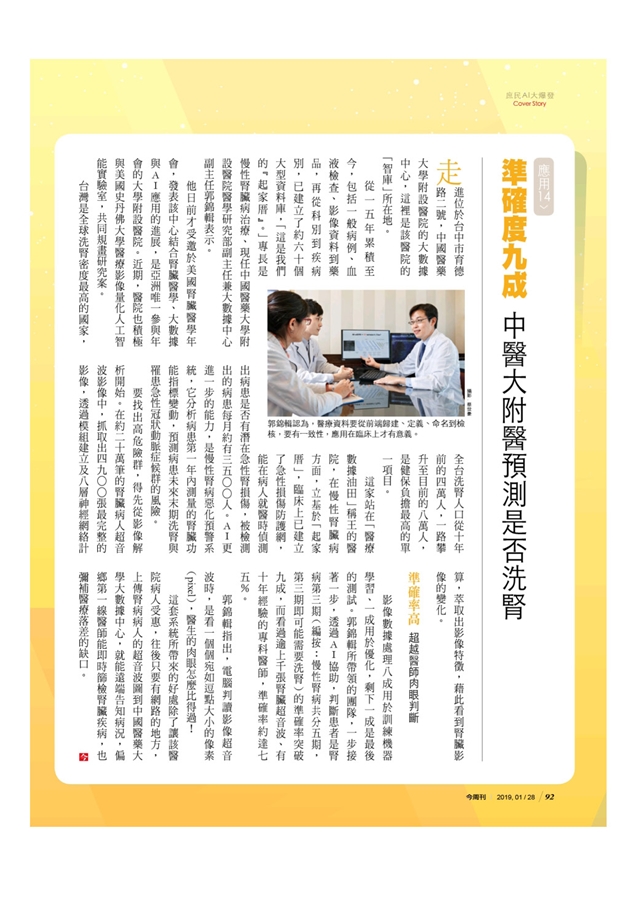Department Introduction
Big Data Center | Major Milestones
:::
Major Milestones
2022
Received two 3-year NSTC grants for cardiology and nephrology research
Signed MOU and NDA and initiated AI projects with the world’s first AI university – Mohamed Bin Zayed University of Artificial Intelligence (MBZUAI) in Abu Dhabi
Collaborated with Ever Fortune. AI Co. to develop an intelligent cardiothoracic ratio estimation system, which the US FDA (K212624) and Taiwan TFDA (007443) approved as a software as a medical device
Accumulated nearly 80 international journal publications, with at least 20 papers in high-impact journals (IF>10 or 10% of the field)
Accumulated 1 US and 3 Taiwan patents (I746249, I755108, I768288) for data and AI intelligence tools
Received Silver Award of the National Healthcare Quality Award (NHQA) for "iHi Platform"
2021
Promoted the business contract between Ever Fortune. AI Co. and a dialysis device company in Singapore that worth 38 million USD
Established “iHi Genomics” analytic platform that integrated genotype data and clinical phenotypes from 230,000 patients
2020
As the first medical center to acquire ISO 29100 & 29191 and CNS 29100-2 for medical data de-identification
Collaborated with Asia University to receive 4-year grant from National Science and Technology Council (NSTC) grant of "Cross-Domain Development and Value-Added Applications of Clinical Databases and AI " for the "Strong Kidney Initiative" project
Signed NDA with a dialysis device company in Singapore
Launched iHi Platform that includes deep-cleaned, integrated, and diverse e-medical records and environmental data from 3 million patients with 19-year follow-up
Created a high-resolution nationwide PM2.5 exposure map and linked with EMR
Received BDC’s first Taiwan patent for Acute Kidney Injury Detection System
2018
11
Deputy Director Chin-Chi Kuo presented "Big Data and Their Clinical Applications: Core Concepts and Updates" at Taipei Veterans General Hospital
10
Assistant Investigator Hsiu-Yin Chiang presented in "2018 IDWeek" in San Francisco, CA, US
10
Deputy Director Chin-Chi Kuo presented "Medical Big Data and Health Insurance Sustainability" at Ministry of Health and Welfare
09
Deputy Director Chin-Chi Kuo presented "Big Data and Renal Medicine: Unlock the Hidden Insights from Daily Practice" at National Chiao Tung University and National Tsing Hua University
07
Deputy Director Chin-Chi Kuo presented "Data Science and Clinical Medicine" at Linkou Chang Gung Memorial Hospital
06
Deputy Director Chin-Chi Kuo presented "Meeting the Unmet Need for Healthcare: What We Need and What We Offer" at National Chiao Tung University and National Tsing Hua University
05
Participated in the exhibition of "2018 Big Data in Precision Health Conference" at Stanford University, USA
04
Deputy Director Chin-Chi Kuo presented "Big Data and Clinical Medicine" at Tungs’ Taichung MetroHarbor Hospital
01-04
Biostatistician Chi-Wei Chung accomplished "Program for Technical Professionals" in Taiwan AI Academy at Taiwan Academia Sinica
01
Deputy Director Chin-Chi Kuo presented "Analyzing proportions in Medical Sciences" at National Center for Theoretical Sciences
2017
12
Participated in the 2017 "Taiwan Healthcare Expo" exhibition
11
Established "Acute Kidney Injury Prevention Network" and received the "Innovative Application Promotion Gold Award" from the Ministry of Health and Welfare
09
Deputy Director Chin-Chi Kuo presented "Big Data and Nursing Care" in Taiwan's Nursing Professional Development Conference
02
Deputy Director Chin-Chi Kuo and the Deputy Director Pei-Ran Sun of the information unit visited the USA's National Institutes of Health
01
Signed agreement with National Yang-Ming University in the authorization of “ The Clinical Informatics and Management System”
2016
09
Invited Professor Yang C. Fann, Director of the Intramural IT and Bioinformatics Program, NIH, USA, as instructor
07
Held 12 Smart Big Data Business Lessons
05
Doctor Chin-Chi Kuo was employed as the Deputy Director of the Big Data Center
03
Started preparation for Big Data Center
03
Held research concept selection event
03
Invited Vincent S. Tseng, Professor of National Chiao Tung University, as instructor
2015
12
Official establishment of the Big Data Center
12
Invited Eric Y. Chuang, Professor of National Taiwan University, to deliver a lecture
11
Collaborated with Department of teaching organizing 14 lessons for research enhancement series
08
CEO Ming-Fong Chen established a Big Data Center Preliminary team
▲




